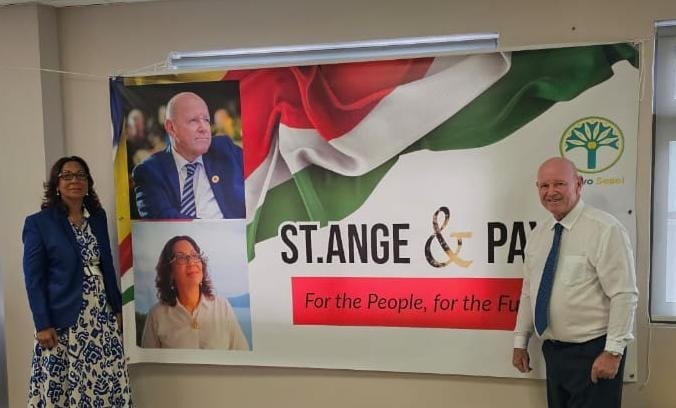Mancham remark on illegal fishing off Africa nets sharp EU reply

A statement by Sir James Mancham that European Union flagged-vessels were allegedly involved in illegal fishing in the waters of African countries has prompted a strong response from the EU.
Sir James had raised the matter at the World Ocean Summit hosted by The Economist in association with the National Geographic in Portugal.
Ms Lowri Evans, Director-General for Maritime Affairs and Fisheries of the European Commission in Brussels, responded by saying the fight against illegal, unreported and unregulated (IUU) fishing was “of paramount importance for the European Union”.
She went on: “The work of the Commission has brought concrete positive results in the fight against IUU fishing.
“Since 2010 the European Commission has investigated more than 200 cases of presumed
IUU fishing by vessels from 27 countries including European ones. As a direct
consequence of these actions, eight flag States and four coastal States have imposed sanctions
against more than 50 vessels for a total amount of roughly eight million of euros.”
She added: “The European Union vessels, which are closely monitored by Member States, have very strong incentives to refrain from engaging in IUU fishing or related activities. Should you have any evidence of EU-flagged vessels engaging in such activities, we kindly invite you to submit any information you might have in order to investigate and act decisively against any wrongdoings.
The European Commission is looking forward to working with you on issues related to international oceans governance.”
Sir James welcomed the response. He said that the European Union was playing a leading role in ensuring the survival of sustainable fishing in the global interest. Brussels had remained steadfast in keeping on line with its international obligations. He personally believed that the European Union must maintain its cohesion in the global interest.
Sir James said more young Africans should be encouraged to become qualified fishermen to reap the benefits of their rich coastal fishing potential. This was, he said, a real alternative to braving the seas around them to become pirates – or to leaving behind their potentially rich country and aiming to cross the Mediterranean as illegal immigrants because of the false notion that the streets of European cities are paved with gold.
Meanwhile, Sir James has described as “better late than never” the news that the British Government is becoming more mindful of the need to end the plight of the islanders forcefully exiled from Chagos following the establishment of the US base in Diego Garcia.
His remarks follow a newspaper report in the UK with the headline “Chagos Island – Exiled Chagossians could be allowed to return home under limited resettlement.”
Some 1,800 Chagossian people were removed from their homeland, a British overseas territory, between 1967 and 1973 to make way for for a US military base at Diego Garcia.
According to the article, a consultation paper recently issued by the British Foreign Office suggested a tourism industry pilot scheme for the so-called “British Indian Ocean Territory” that would involve up to 1,500 islanders. The consultation paper says jobs could be available at the US facility on the island of Diego Garcia but no commercial flights would be permitted to land there.
Sir James believes the Seychelles Government should promptly engage the British Government in offering all possible assistance and encouragment to the development of acceptable tourism in some parts of the archipelago. This would, he says, partly compensate the exiled islanders for the abuse of their human rights over several decades. Seychelles has acquired considerable experience in the development of tourism and could be a source for identifying private financing of suitable tourism projects.
If no commercial plane would be allowed to land in Diego Garcia, then visitors would have to fly to Seychelles and take a cruiseship to reach the Chagos. In this respect, Seychelles had an advantage over Mauritius because it is outside the cyclonic belt.
Sir James said the time had come for Mauritius, Seychelles and the “Chagossians” to engage the British Government in a “win-win” situation for all parties concerned “having regards to what is perceived as achievable under current global geo-political reality”.
More than half of the exiles have since died and Sir James added: “All delay in arriving at an acceptable agreement is bound to be at the expense of the ageing islanders and their family.”













